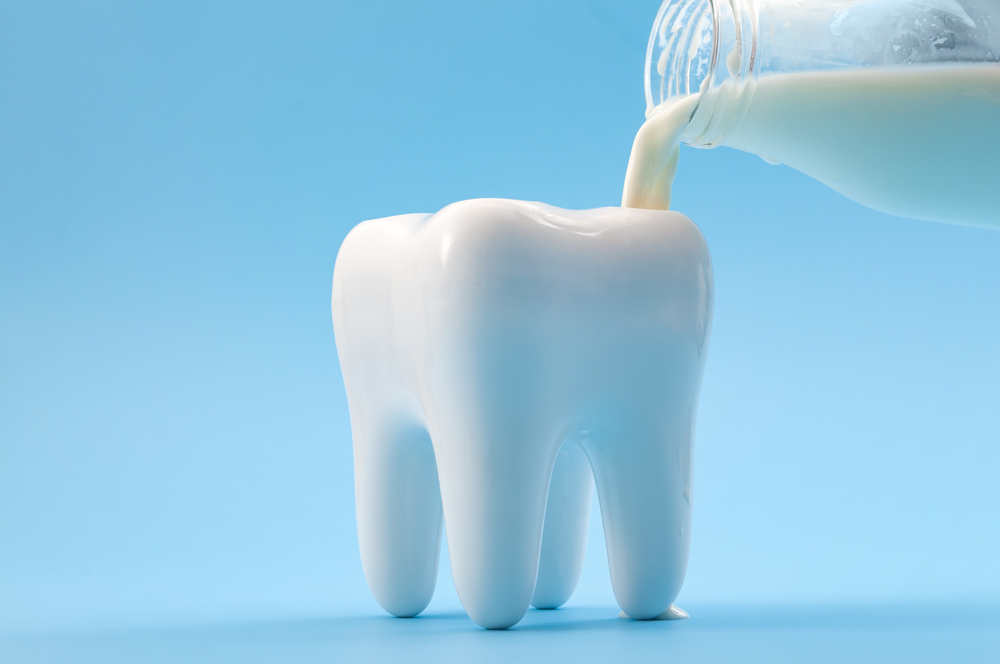The Link Between Calcium and Your Teeth

Calcium is a crucial mineral in the body, popular for its exciting role in building and maintaining strong bones and teeth. It is also vital for blood clotting, muscle contraction, nerve function, and regulating heart rhythms. This comprehensive guide explores the impact of calcium on dental health, emphasizing the importance of vitamins and minerals in combination with oral care, such as regular cleanings and fillings and timely gum disease treatment. Insights from Ashraf Dentistry will highlight how integrating sufficient calcium into our diets can fortify our oral health. (Source: Healthline, Can Calcium Deficiency Affect Your Teeth? Medically reviewed by Jillian Kubala, MS, RD, Nutrition — by Lauren Panoff, MPH, RD, July 9, 2021, https://www.healthline.com/nutrition/calcium-deficiency-teeth ).
Can Calcium Deficiency Affect Your Teeth?
Calcium deficiency can significantly impair dental health. It’s a key component in building strong tooth enamel, the protective outer layer of teeth. Ashraf Dentistry explains, “A lack of calcium weakens enamel, increasing the potential risk for dental decay and necessitating more frequent cleanings and fillings.” They stress the importance of calcium in fortifying enamel against cavities and erosion, underscoring its preventive role against extensive dental procedures.
Symptoms of Calcium Deficiency: Teeth
The most direct impact of calcium deficiency on teeth includes increased fragility, heightened sensitivity, and a greater propensity for cavities. “Patients with calcium deficiency often require more intensive care, including regular cleanings and fillings, or dental sealant treatments due to weakened enamel,” notes Ashraf Dentistry. Additionally, a lack of calcium can lead to delayed tooth formation in children and tooth loss in adults.
Other Symptoms
Besides dental issues, calcium deficiency manifests in muscle aches, fatigue, and brittle nails. Ashraf Dentistry points out, “These broader health issues can indirectly impact oral health, necessitating a comprehensive approach in dental care, gum disease treatment, and overall wellness.”
Causes of Calcium Deficiency
Common causes include insufficient dietary intake, hormonal changes, especially in postmenopausal women, and certain medical conditions like renal disease. Ashraf Dentistry advises, “Awareness of these causes is crucial in preventing calcium deficiency, which in turn minimizes the need for invasive dental interventions or frequent cleanings and fillings.” They also highlight the importance of proactively addressing these causes by consulting with your dentist and health practitioner to maintain optimal dental health.
Treatment and Prevention
To combat calcium deficiency, incorporating calcium-rich foods such as dairy products, leafy greens, fortified foods, and supplements, when necessary, is essential. “Maintaining consistent dental check-ups combined with a diet rich in calcium is a fundamental strategy for mitigating the likelihood of dental issues. These regular dental visits allow for early detection and treatment of potential oral problems, reducing the need for more complex procedures later on. A calcium-rich diet reinforces this approach by strengthening tooth enamel and supporting oral health. This dual focus on nutritional balance and dental care supports oral health and your overall well-being. Consequently, this comprehensive approach is instrumental in promoting long-term dental health.,” suggests Ashraf Dentistry. They emphasize that a holistic approach is the way to go.
Additional Mentionable Vitamins and Minerals
In addition to calcium, several other essential vitamins and minerals also support teeth and gum health. Here’s a comment from Ashraf Dentistry that elaborates on this: “Alongside calcium, other key nutrients are crucial for oral health. Vitamin D is indispensable as it aids in calcium absorption and in maintaining bone mineral density. Phosphorus, found in foods like meat and dairy, works closely with calcium to build strong teeth and bones. Vitamin A is vital for maintaining mucous membranes and healthy gums. Vitamin C is essential for your gum health, as it helps maintain the connective tissue and prevent gingivitis. Finally, Potassium, similar to Vitamin D, helps improve bone mineral density and works together with magnesium to balance the body’s pH levels, thus preventing the blood from becoming overly acidic. This balance is crucial as excessive acidity may result in calcium being extracted from bones and teeth.” Each of these nutrients contributes uniquely to oral health.
By focusing on nutrition and regular dental care, including cleanings and fillings, and promptly addressing gum disease, we can effectively manage and prevent the oral implications of calcium deficiency. Ashraf Dentistry concludes, “A comprehensive health strategy is key to maintaining strong teeth and gums.”
